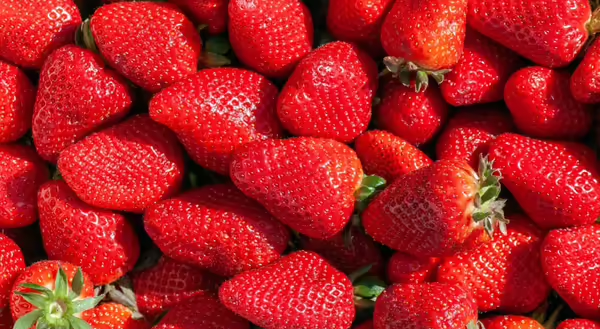
With all the uncertainty happening in our world, it can feel challenging to maintain our mental health. Whether it’s concerns about the economy, global conflicts, or domestic concerns, there is a lot happening that can cause us to feel overwhelmed, scared, or anxious. Yet, when it comes to our mental health, there are also many tools that we can use. Cultivating a gratitude practice, learning mindfulness, or getting regular physical activity can all help.
One often overlooked tool for boosting our mental health is the food that we eat. Think about terms like “comfort food” or “stress eating.” These concepts acknowledge that the foods we eat impact our moods. During times of stress, we often crave starchy foods such as cookies, bread, or pasta. These foods help boost the release of feel-good chemicals in the brain, such as dopamine and serotonin. Unfortunately, these foods also spike and then drop our blood sugar, and promote inflammation in the body. Blood sugar instability and inflammation have been linked with negative mood changes, yet other foods have been linked with positive mental health.
So, how can we eat for better mental health? Here are three tips to get started:
- Cut back on refined grains and sugar. Sugar, and foods made with refined or white flour, have been linked to poorer mental health in several studies. The American Heart Association recommends that women consume 25g of sugar or less per day, and 36g or less for men. When purchasing foods, look at the “added sugar” on the nutritional label to get started. Look for whole grain alternatives to products typically made with refined grains. Examples include whole wheat bread, brown rice or red lentil pasta, or oatmeal.
- Watch what you drink. Caffeine consumption has been linked to higher anxiety levels in some individuals. Similarly, although alcohol is often thought to be relaxing, studies have tied alcohol consumption to increased anxiety levels. Try other beverages such as herbal tea, water with lemon, or fermented beverages such as kombucha or kefir.
- Add in berries. Not only are berries high in vitamins, fiber, and antioxidants, but they have also been linked to more positive mental health in studies. Summer is a great time to take advantage of fresh berries such as strawberries, blueberries, and raspberries! Try adding them to cereal, smoothies, or having them as a snack or light dessert. Frozen berries work just as well when fresh is not available.
About the Author
Leilah Siegel is an Illinois Extension Community Health Educator serving Cook County. Her interests include translating relevant research-based health information into engaging and accessible programs for communities. She develops, delivers, and evaluates health and wellness programming focused on mental health and chronic disease prevention and provides training and leadership in these areas. She is a passionate believer in the power of health information and equity to empower individuals and communities. You can reach Leilah at lmcnabb@illinois.edu or at (708) 449-4320.
References
- Zhang, L., Sun, H., Liu, Z. et al. Association between dietary sugar intake and depression in US adults: a cross-sectional study using data from the National Health and Nutrition Examination Survey 2011–2018. BMC Psychiatry 24, 110 (2024).
- Knüppel, A., Shipley, M.J., Llewellyn, C.H. et al. Sugar intake from sweet food and beverages, common mental disorder and depression: prospective findings from the Whitehall II study. Sci Rep 7, 6287 (2017).
- Liu C, Wang L, Zhang C, Hu Z, Tang J, Xue J and Lu W (2024) Caffeine intake and anxiety: a meta-analysis. Front. Psychol. 15:1270246.
- Onaemo, V.N., Chireh, B. (2024). Alcohol, Depression, and Anxiety. In: Martin, C.R., Preedy, V.R., Patel, V.B., Rajendram, R. (eds) Handbook of the Behavior and Psychology of Disease. Springer, Cham.
- Jing Sun, Zhaoying Li, Yan Li, Dongfeng Zhang, Intakes of Specific Categories of Vegetables and Fruits Are Inversely Associated With Depressive Symptoms Among Adults, Journal of Epidemiology, 2021, Volume 31, Issue 3, Pages 210-219, Released on J-STAGE March 05, 2021, Advance online publication April 11, 2020, Online ISSN 1349-9092, Print ISSN 0917-5040